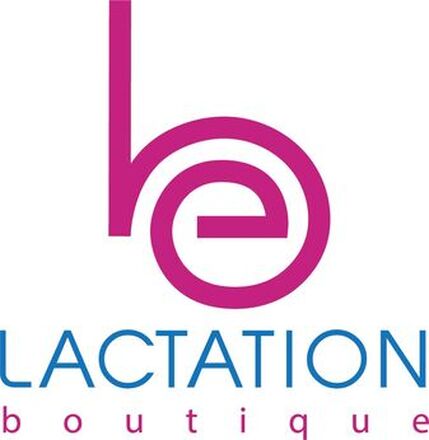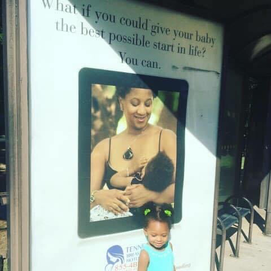BE Lactation Boutique
|
90+ Hour Lactation Education
Lactation Clinical Supervision Professional Development and Mentorship Jada Wright Nichols, MS, OTR/L, IBCLC Jada is a passionate maternal wellness consultant who began her career in rehabilitation and human development. She has a bachelor’s degree in speech pathology and audiology, and a master’s degree in occupational therapy. Jada has worked with individuals across the life span, including the NICU, early intervention services, the school system, home health, acute and inpatient rehabilitation, and outpatient pediatrics and adults. She has been so invested in her patients, clients, and families, that their needs and expectations have led her to pursue specializations in lymphedema, pelvic floor rehabilitation, and oncology rehabilitation. Jada has professional certifications in massage therapy, holistic nutrition, yoga, and perinatal mental health. She has curated her care in these areas around new and expectant families. She is a birth and postpartum doula, and an International Board Certified Lactation Consultant. As an IBCLC, she provides culturally competent support in the community, in her private practice, and in special care hospitals. In addition to advocacy, her special interests include educating, training, and mentoring future IBCLCs. |
Becoming a Lactation Constultant
IBLCE Pathway 1: Recognized Healthcare Professionals
Pathway 1 IBCLC candidates must practice as a Recognized Health Professional or provide breastfeeding support through a Recognized Breastfeeding Support Counselor Organization. In the case of applicants who provide breastfeeding support through a Recognized Breastfeeding Support Counselor Organization, they must have completed the 14 subjects set forth in the Health Sciences Education Guide. Additionally, all Pathway 1 candidates must have the following:
IIBLCE Pathway 3: Mentorship With An IBCLC
Pathway 3 mentorship is a structured, defined relationship between an applicant and IBCLC(s) which must be pre-approved. The mentorship must be developed according to the specifications found in the Pathway 3 Plan Guide, and the certification status of the IBCLCs serving as mentors must be verified by IBLCE prior to beginning the mentorship. All Pathway 3 Plans MUST be verified by IBLCE through an application process (which includes a fee) PRIOR to earning clinical hours for this Pathway.
In addition to the Health Sciences Education courses, Pathway 3 candidates must complete:
Information courtesy of, and may be found in greater detail at IBLCE.
Pathway 1 IBCLC candidates must practice as a Recognized Health Professional or provide breastfeeding support through a Recognized Breastfeeding Support Counselor Organization. In the case of applicants who provide breastfeeding support through a Recognized Breastfeeding Support Counselor Organization, they must have completed the 14 subjects set forth in the Health Sciences Education Guide. Additionally, all Pathway 1 candidates must have the following:
- Minimum of 90 hours of lactation specific education within the five years immediately prior to examination application.
- An additional five (5) hours of education focused on communication skills. Preferably these five hours will be directly related to lactation and breastfeeding care, but this is not a requirement.
- Minimum of 1000 hours of lactation specific clinical practice in an appropriate supervised setting within the five years immediately prior to examination application.
IIBLCE Pathway 3: Mentorship With An IBCLC
Pathway 3 mentorship is a structured, defined relationship between an applicant and IBCLC(s) which must be pre-approved. The mentorship must be developed according to the specifications found in the Pathway 3 Plan Guide, and the certification status of the IBCLCs serving as mentors must be verified by IBLCE prior to beginning the mentorship. All Pathway 3 Plans MUST be verified by IBLCE through an application process (which includes a fee) PRIOR to earning clinical hours for this Pathway.
In addition to the Health Sciences Education courses, Pathway 3 candidates must complete:
- Minimum of 90 hours of lactation specific education within the five years immediately prior to examination application.
- An additional five (5) hours of education focused on communication skills. Preferably these five hours will be directly related to lactation and breastfeeding care, but this is not a requirement.
- Minimum of 500 hours of directly supervised lactation specific clinical practice as described in the Pathway 3 Plan Guide and obtained within the five years immediately prior to examination.
Information courtesy of, and may be found in greater detail at IBLCE.
Professional Development
Why BE?
Whether you want to provide lactation support in the community, a physician’s office, a birth hospital, a children’s hospital, or your own private practice, you will receive comprehensive training that will help you to BEcome competent, confident, and connected in the field of lactation. Along the path, you will encounter pioneers, leaders, and lactivists on the ground, in the suites, and across the country. This 12 month virtual program is designed for Pathway 1 aspirants, and applicable to Pathway 3, with some modifications.
BE Lactation Education
90+ Hours of Lactation Specific Education, which exceed the requirements for IBLCE eligibility. In addition to the core areas of lactation competency, including development and nutrition; physiology and endocrinology; pathology; pharmacology and toxicology; psychology, sociology, and anthropology; breastfeeding techniques; and clinical skills, this course goes deeper into specialized areas of practice and policy. The learning format includes 2 monthly calls with your cohort, recorded lectures, weekly case studies, and monthly practice exams.
BE Lactation Clinical Supervision
Early in the training, you will complete a fast-track 45-hour, culturally relevant certification, so that you can begin establishing a breastfeeding clientele, while completing clinical hours. The level of supervision begins with virtual observation of lactation consultants in a variety of settings, includes telephone consultations, online support group moderating, breastfeeding class teaching, recordings of your sessions (with written consent), and culminates with specific feedback from the families that you serve.
Your Career Development
We will use our large network to assist you in connecting with lactation support providers in your area, for additional supervision or community engagement. We will strengthen skills related to research, advocacy, and public speaking on behalf of lactation, so that you stand out.
Your Time
This program is designed to meet for 12 months; however, if it becomes necessary to extend the time to complete the clinical supervision, accommodations may be made. Expect to spend 10 hours per week on lactation studies and training.
Your Investment
In addition to your time, energy, passion, compassion, and professionalism, be prepared to secure required text books, and invest compensation for the educational hours and clinical supervision. Flexible payment plans are available.
Your Opportunities
You will have the opportunity to connect other aspirants and allies in the field, learn from experienced lactation consultants, and give families the moments and memories for which they have hoped.
Your Gifts
We want for you to bring your knowledge, experience, and perspective, as a healthcare provider to the cohort, and to the field.
Our Approach
We use a variety of learning platforms, styles, and facilitators to help you to get the most comprehensive experience possible. We want you to enjoy this journey, and feel completely supported along the way.
Our Commitment
Mentorship is the service that we pay to our profession, in order to ensure that the future is sustainable, equitable, and profitable. We are fully committed to helping you navigate the road into lactation, and to help you thrive once you pass the exam.
Whether you want to provide lactation support in the community, a physician’s office, a birth hospital, a children’s hospital, or your own private practice, you will receive comprehensive training that will help you to BEcome competent, confident, and connected in the field of lactation. Along the path, you will encounter pioneers, leaders, and lactivists on the ground, in the suites, and across the country. This 12 month virtual program is designed for Pathway 1 aspirants, and applicable to Pathway 3, with some modifications.
BE Lactation Education
90+ Hours of Lactation Specific Education, which exceed the requirements for IBLCE eligibility. In addition to the core areas of lactation competency, including development and nutrition; physiology and endocrinology; pathology; pharmacology and toxicology; psychology, sociology, and anthropology; breastfeeding techniques; and clinical skills, this course goes deeper into specialized areas of practice and policy. The learning format includes 2 monthly calls with your cohort, recorded lectures, weekly case studies, and monthly practice exams.
BE Lactation Clinical Supervision
Early in the training, you will complete a fast-track 45-hour, culturally relevant certification, so that you can begin establishing a breastfeeding clientele, while completing clinical hours. The level of supervision begins with virtual observation of lactation consultants in a variety of settings, includes telephone consultations, online support group moderating, breastfeeding class teaching, recordings of your sessions (with written consent), and culminates with specific feedback from the families that you serve.
Your Career Development
We will use our large network to assist you in connecting with lactation support providers in your area, for additional supervision or community engagement. We will strengthen skills related to research, advocacy, and public speaking on behalf of lactation, so that you stand out.
Your Time
This program is designed to meet for 12 months; however, if it becomes necessary to extend the time to complete the clinical supervision, accommodations may be made. Expect to spend 10 hours per week on lactation studies and training.
Your Investment
In addition to your time, energy, passion, compassion, and professionalism, be prepared to secure required text books, and invest compensation for the educational hours and clinical supervision. Flexible payment plans are available.
Your Opportunities
You will have the opportunity to connect other aspirants and allies in the field, learn from experienced lactation consultants, and give families the moments and memories for which they have hoped.
Your Gifts
We want for you to bring your knowledge, experience, and perspective, as a healthcare provider to the cohort, and to the field.
Our Approach
We use a variety of learning platforms, styles, and facilitators to help you to get the most comprehensive experience possible. We want you to enjoy this journey, and feel completely supported along the way.
Our Commitment
Mentorship is the service that we pay to our profession, in order to ensure that the future is sustainable, equitable, and profitable. We are fully committed to helping you navigate the road into lactation, and to help you thrive once you pass the exam.
Be Confident. Be Competent. Be Connected.
Lactation Education for Doulas and Childbirth Educators
We teach a village approach to breastfeeding education and support for families before and after birth. Our 2.5 hour course is designed to teach birthworkers how to increase a family’s knowledge and skills, help them view breastfeeding as normal, help them to demystify breastfeeding, encourage them to develop positive attitudes toward breastfeeding, and find ways to include the entire circle of support in the breastfeeding journey. We offer valuable teaching tools and evidenced-based strategies that can easily be incorporated into existing educational formats. We review the benefits of breastfeeding, describe national, international, and professional mandates to improve breastfeeding rates, describe potential barriers to breastfeeding, describe the physiology of lactation and contraindications to breastfeeding, identify what healthcare professionals can do to support breastfeeding, and describe techniques for successful breastfeeding, based on current research.


